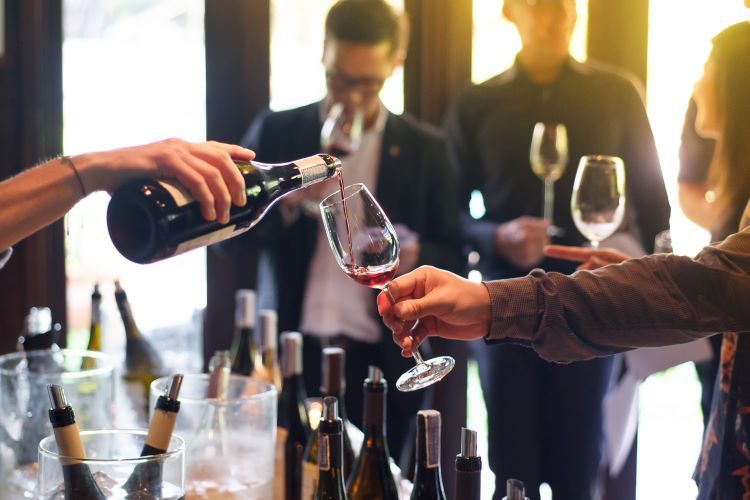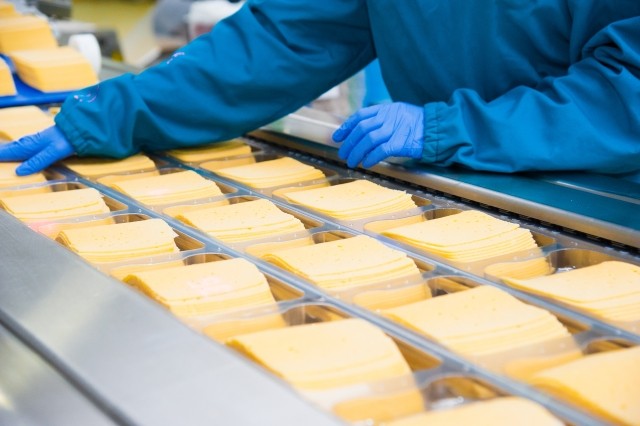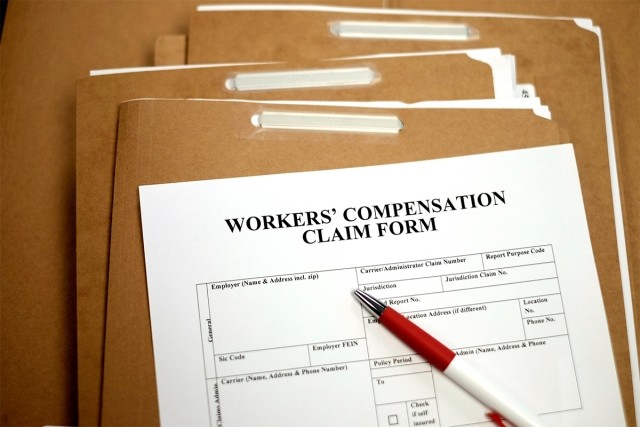Blog
Alcohol at Company Events: Guidelines for Mitigating Risk at Holiday Gatherings
When it comes to alcohol at your company sponsored event, you need clear guidelines for how to mitigate your risk as your company celebrates.
As we approach the season of company holiday gatherings, for many the first in several years, it's time for the annual reminder of the importance of proper event planning, especially when it comes to alcohol. Giving full attention to the role of alcohol in planning your event will minimize the associated risks (such as unruly guests) or worse (injuries and accidents).

Consider the following basic guidelines when you are planning an event with alcohol:
- Review local and state laws regarding the sale and consumption of alcohol. You may need to obtain a special license or permit to serve alcohol during your event or confirm that the venue or caterers are properly authorized to do so.
- Confirm with a prospective venue or property owner that serving alcohol is permitted and ask about any additional requirements that may be necessary such as:
- A licensed bartender/caterer
- A security service tasked with checking identification, controlling general venue access, and the time for “last call”
- Evidence of General Liability insurance that includes host liquor liability and/or a standalone liquor liability insurance policy.
- Consider serving only beer and wine, not liquor or cocktails.
- Keep in mind the potential for workers’ compensation injuries at a company-hosted event and read our blog on workers’ compensation risks at workplace parties.
If this is a larger event in scale, consider the following:
Hire a Qualified Third-Party Catering Vendor
It is best to rely on the skill and experience of a well-qualified caterer licensed to handle the dispensing of alcohol at your event. To formalize the arrangement and risk transfer, we advise implementing a mutually agreeable contract. Ensure the agreement contains provisions that transfer risks for the caterer's services appropriately to them. These provisions should include indemnification of your organization and require the vendor to provide a Certificate of Insurance. The contract should specifically require the inclusion of your organization as an Additional Insured under their Commercial General Liability insurance policy, supported by the certificate as proof. This provides protection for the organization’s vicarious liability under the vendor’s insurance policy.
Part of screening vendors should include an understanding of the training the servers have and assurance that the vendor tracks that training and certification. TIPS training and certification is a well-known certification across the country, but some states, like California, also have requirements such as the RBS certification. Any vendor you hire should be able to articulate all the certifications required in your state and how they ensure that every individual who will serve alcohol is certified.
If drinks are to be mixed at the event, the vendor should be able to tell you how they ensure the proper and intended amount of each type of alcohol is dispensed into the drinks. There is technology and auditing processes available to help make sure the amount of alcohol in each drink is what is intended.
Use Effective Signage and Enforce Controls
- Place prominent signage at the venue entrance stating the rules about general personal conduct and alcohol.
- Inside your event, clearly visible signs about identification and drink limits will help servers adhere to the policies you have established. Consider providing a set number of tickets per guest/attendee or a two-drink maximum.
- Always offer non-alcoholic alternatives.
- Always serve food—and more than snacks.
- Develop controls with all vendors to ensure underage and intoxicated guests aren’t served.
- Consider limiting your guests to people 21 and older. Clearly state any age restriction in the promotions, tickets, or event invitations.
- During the event, be sure all entrances are staffed by your staff/volunteers or hired security service. Verify tickets and invites. Have qualified ID checkers for anyone who looks under the age of 30. Do not allow any exceptions.
- If minors are welcome at the event, require that people who wish to drink wear wristbands upon age verification. Restrict consumption to a designated area for large events with younger attendees.
Handle Intoxicated Guests with Care
Companies may be held liable should a guest injure a third party after your sponsored event. Despite your best efforts, you may need to deal with a drunk employee or guest and mitigate the risk they may pose to themselves or others. Prior to the event, develop a clear strategy to prevent and address this situation and share it amongst the key organizers and vendors.
Suggestions include:
- Encourage the caterer/bartender to use full discretion in cutting off any intoxicated persons. Better yet, a two-drink (or one per hour of the event) policy allows a server to simply reference the policy and minimize any disputes.
- Hire a security service for your event. If an intoxicated guest becomes disruptive or unruly, designated staff should quietly ask them to leave the event space.
- Set a “last call” one hour before the event ends.
- Serve more food and non-alcoholic drinks towards the end of your event.
- Ensure any intoxicated guests make it home from your event safely.
Promote Safe Transportation for Attendees
Most of an organization’s risk begins once the holiday party ends. A guest driving after your event is the single largest risk associated with hosting an event with alcohol. According to the NHTSA, every day, 32 people die in the United States from drunk driving crashes—there were 11,624 preventable deaths in 2020 alone. The primary risk management goal of every event must be to prevent drunk driving.
Suggestions include:
- Discourage employees and guests from driving to the event venue. Arrange for transportation to and from the event. Without personal vehicles nearby, the risk of departing guests driving drunk can be reduced.
- Make advance arrangements with a local cab company/ride-sharing service for free/reduced fare rides. Major ride-sharing companies have programs for arranging rides for company events.
- If guests may drive to the venue, encourage designated drivers by providing them with free nonalcoholic beverages, food, door prizes, or special incentives, and consider asking for volunteers to commit prior to the event.
- Do not allow an employee who is under the influence to leave the event behind the wheel. While this can feel difficult at times, preventing the consequences of an accident involving an employee who becomes intoxicated at your event is worth the discomfort.
- If overnight lodging is provided but the site is not within walking distance, provide shuttles for transportation. Do not provide uncontrolled shuttle transportation to a parking lot where the employee will simply get into their car and drive away.
- Provide designated drivers with a wristband for easy identification.
- Encourage public transit, if practical, and provide information to guests about transportation options available.
- Have event staff provide transportation assistance to anyone who may need help. Allow discretion of event staff in arranging for local lodging, if necessary.
Your company will effectively minimize the risks associated with serving alcohol at your event by planning and adhering to commonsense guidelines. Executing your plan will go a long way in protecting your business, and most importantly, your employees and guests. Enjoy a smoothly run event this holiday season that is remembered for all the right reasons.
For more information, reach out to your Woodruff Sawyer account team.
Authors
Table of Contents














